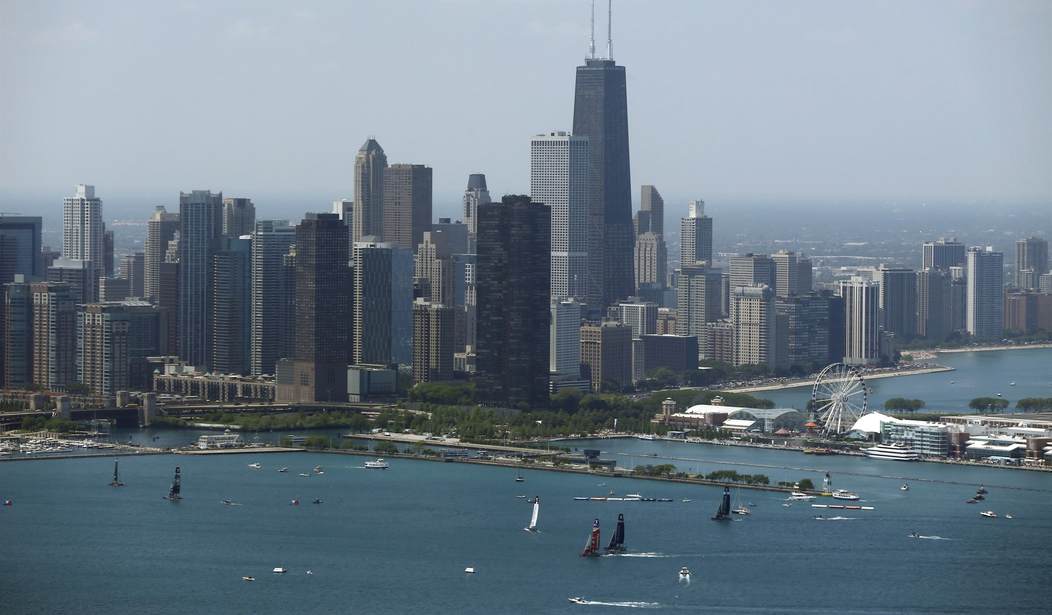“At the risk of giving Vance any credit here,” The Atlantic’s Derek Thompson writes, “I must admit that progressives do have a family problem.”
It's not so much, "family values" that the Democrats are out of touch with. They are eschewing the whole idea of "family" and going without it.
J.D. Vance has been uttering inconvenient truths about the left's "family problem" for years. They can complain all they want, but the statistics tell the story.
Perhaps they hate being reminded of their choice not to procreate. After all, the urge to be a father or mother is deeply embedded in human DNA. It's not political; it's biological. And despite protestations from progressives who claim themselves to be perfectly happy without children, deep inside, their bodies are telling them something totally different.
The desire to procreate is powerful in humans and is a big reason there are eight billion of us on planet Earth. Denying our biology used to be considered sinful. Now, it's a "choice." That's why saying the Democrats are led by "childless cat ladies" strikes too close to the bone for many progressives who resent being reminded how other people can find happiness with children underfoot.
Thompson:
The problem doesn’t exist at the level of individual choice, where conservative scolds tend to fixate. Rather, it exists at the level of urban family policy. American families with young children are leaving big urban counties in droves. And that says something interesting about the state of mobility—and damning about the state of American cities and the progressives who govern them.
Amen to all that. Here are some disturbing facts the Democrats should chew on.
A new analysis of Census data by Connor O’Brien, a policy analyst at the think tank Economic Innovation Group, found that between 2020 and 2023, the number of kids under five years old declined by an astonishing 20% in Manhattan, Queens, and the Bronx. It also fell by double digits in the counties encompassing the cities and outlying suburbs of Los Angeles, Chicago, San Francisco, Philadelphia, Minneapolis, and St. Louis.
What's really causing Democrats to reach for the Tums is that in 20 years, the number of children under five in Manhattan, Brooklyn, Chicago, Los Angeles, and San Francisco will have declined by 50%.
Maybe some Democrats are getting the idea that raising a kid in a city run by radical Democrats isn't such a good idea.
Related: San Francisco Begins Offering Bus Tickets Out of Town to Homeless People
“I’m deeply worried about a family-exodus doom loop,” Conor O'Brien told Derek Thompson. “When the population of young kids in a city falls 10 or 20 percent in just a few years, that’s a potential political earthquake. Almost overnight, there are fewer parents around to fight for better schools, local playgrounds, or all the other mundane amenities families care about.”
Why does this necessarily sound the death knell for progressivism in big cities?
At a glance, these trends may not seem like they have anything to do with contemporary progressivism. But they do. America’s richest cities are profoundly left-leaning, and many of them—including New York, Los Angeles, and San Francisco—are themselves ensconced in left-leaning states. These places ought to be advertisements for what the modern progressive movement can achieve without meddlesome conservatism getting in the way, at the local or state level. If progressives want to sell their cause to the masses, they should be able to say: Elect us, and we’ll make America more like Oakland. Or Brooklyn. Or suburban Detroit. If they can’t make that argument, that’s a problem.
"Housing policy is the quantum field of urban life, extending across every sector and making contact with every problem. When cities fail on housing policy, the failure ripples," Thompson writes. Cities that are successful in building adequate housing are all in the Sun Belt. "Austin, Raleigh, and Phoenix are expected to expand their apartment inventory more than five times faster than San Diego, Baltimore, or San Francisco," notes Thompson.
The housing crisis in large blue cities has a domino effect on the quality of life. High housing costs raise the cost of local services and create labor shortages in industries like childcare and the home health care that many seniors increasingly depend on.
A 2023 analysis by the U.S. Department of Labor and the Women’s Bureau found that infant child care devoured the highest share of family income in large urban counties. Nationwide, the average family with at least one child under the age of 5 devotes about 13 percent of family income to pay for child care. But the typical infant day-care center in San Francisco and Chicago consumes about 20 percent of a local family’s income. In Boston, Manhattan, and Brooklyn, it’s more like 30 percent. Child care is just another example of how constrained housing supply can poison parts of the economy that don’t immediately seem to have anything to do with it.
Vance may have exaggerated the left's refusal to have children. Not all childless people are that way by choice. And even those parents in big cities who want children find it prohibitively expensive to raise a child in a city run by radical progressives.
That should be the real focus of the Democrat's efforts to solve their family problem. Big cities used to be run by hard-headed Democrats like Daley in Chicago and Rizzo in Philadelphia. They are now run by politicians who are terrified of the teacher's unions, radical community groups, and progressives with ties to national political groups.
Would the last family to leave an American urban nightmare please turn out the lights?










